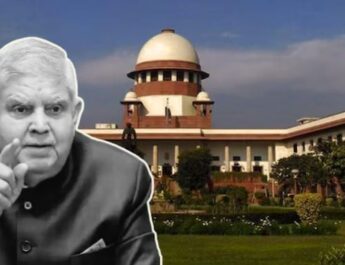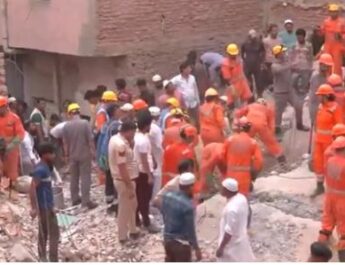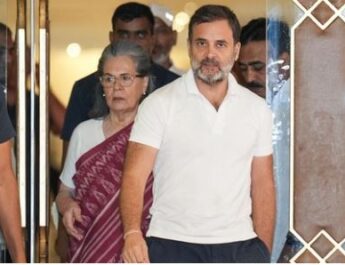New Delhi: On Wednesday, the Supreme Court expressed concerns regarding the Waqf (Amendment) Act, which abolishes the practice of ‘waqf by user,’ as it reviewed challenges to the recently enacted legislation. Chief Justice Sanjeev Khanna, leading a three-judge panel, noted that the removal of ‘waqf by user’ could have significant implications, although the court refrained from issuing interim orders at this stage. The court plans to continue its deliberations on the issue on Thursday.
These remarks were made as the court commenced hearings on 73 petitions contesting the legitimacy of the new Waqf (Amendment) Act, which was recently approved by Parliament. A key point of contention, which dominated Wednesday’s discussions, pertains to the law’s elimination of ‘waqf by user.’ This practice designates property as waqf if it has been utilized for Islamic religious purposes over an extended period.
The bench sought clarification from the Centre regarding the removal of the ‘waqf by user’ provision, highlighting that many mosques constructed between the 14th and 16th centuries lack formal sale deeds.
“You have yet to address the core question. Will ‘waqf by user’ be recognized or not? This would reverse an established practice. How will you register properties classified as ‘waqf by user’? It is not feasible to assert that there will be no legitimate claims,” the bench remarked.
The Supreme Court emphasized that requiring such mosques to present registered deeds would be impractical, as these structures would qualify as waqf by user properties.
The term ‘waqf by user’ refers to properties recognized as waqf due to their long-standing use for religious or charitable activities, even in the absence of formal documentation. However, the new legislation includes an exemption for properties that are under dispute or situated on government land.
Additionally, the court raised concerns about the provision allowing non-Muslims to serve on waqf boards and the Central Waqf Council, questioning whether the Centre would permit Muslims to participate in Hindu endowment boards.
The bench stated that the provision of the Waqf (Amendment) Act, which stipulates that a Waqf property will not be recognized as such while the collector investigates whether it is government land, will not be enforced.
Solicitor General Tushar Mehta, representing the Centre, remarked, “There exists a shop, a Waqf temple. The act does not indicate that its use will cease. It merely states that it will not receive benefits until a decision is made.”
In response, Chief Justice Khanna inquired, “What will occur then? Where will the rent go? What is the purpose of that provision?” Mehta responded, “It does not state that its use as a Waqf will be halted.”
The Supreme Court made these remarks while reviewing 73 petitions contesting the Waqf (Amendment) Act, which has incited protests nationwide. In certain areas of West Bengal, particularly in Murshidabad, a district with a significant Muslim population bordering Bangladesh, violence has erupted during these protests.
The Supreme Court is scheduled to revisit the case on Thursday and did not issue any interim orders due to objections raised by the Solicitor General and state counsels.




